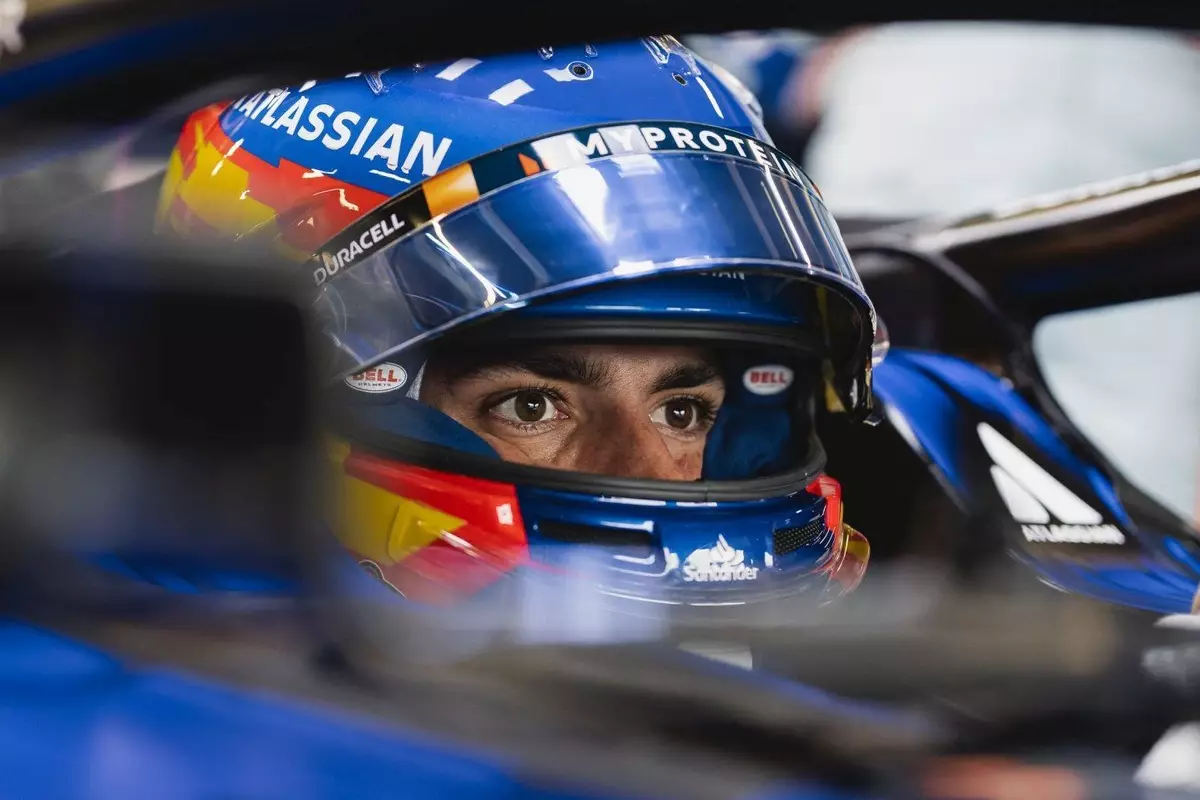In the high-octane world of Formula 1, the pursuit of excellence often collides with the raw emotions of the sport. Recently, the FIA (Fédération Internationale de l’Automobile) announced a strict new policy aimed at curbing swearing among drivers. While the initiative may stem from a desire to maintain decorum, it has sparked a heated debate about emotional expression in a sport characterized by adrenaline-fueled moments. Notably, Williams driver Carlos Sainz has voiced strong concerns over these regulations, suggesting that they may hinder the authenticity that is central to Formula 1.
Understanding the FIA’s Position
The FIA’s updated Sporting Code includes stiffer penalties for swearing and other verbal misconduct, with potential fines escalating to €120,000 and even race bans depending on the severity of the infraction. This regulatory shift aims to present a more polished image of motorsport, aligning it with traditional sports decorum. However, critics argue that such measures stifle the spontaneity and emotional authenticity that make racing—and particularly F1—so captivating. To illustrate the consequences of this clampdown, WRC driver Adrien Fourmaux faced fines for “inappropriate language” despite his comments not being aimed at anyone specific, raising questions about the boundaries of acceptable emotional expression in high-stakes sports.
Sainz contends that emotion is an intrinsic aspect of the sport, especially in the heat of competition. His assertion highlights a crucial point: the pressures faced by drivers are immense, and their raw reactions during pivotal moments offer a glimpse into the human side of racing. The adrenaline rush, the race strategies, and the ultimate quest for victory can often lead to bursts of frustration or joy, which are completely natural. When these genuine feelings are muted, fans may lose out on an essential aspect of the sport—its authenticity.
Media Representation versus Real Emotions
While Sainz agrees that discipline in media interactions is paramount, he believes that the FIA’s stringent regulations concerning team radio communications may be excessive. He argues that limiting drivers to a sanitized form of dialogue undermines the adrenaline-driven narrative that unfolds during races. Much like players in other high-pressure sports, F1 drivers experience intense moments where expressing frustration or excitement is a genuine reaction. Sainz warns that eliminating the passionate outbursts found in the team radio chatter diminishes the viewer’s experience and potentially strips away a layer of what makes motorsport exhilarating.
The Fine Line Between Passion and Professionalism
The debate surrounding this issue emphasizes a complex balancing act: how to maintain a level of professionalism while preserving the unique character of racing. While Sainz speaks on the need for decorum while addressing the media, he firmly opposes the notion of “muzzling” driver communications. He argues that a certain degree of passion—even if accompanied by expletives—could be harmless and necessary for portraying the genuine experiences of a driver navigating a high-pressure environment. Moreover, Sainz analogizes the scenario to sports such as football, where players are often captured sharing spontaneous comments that may not always align with a “family-friendly” narrative.
As F1 evolves, the question remains whether the FIA will reconsider its stance on driver communications, particularly in terms of live radio broadcasts that are already subjected to delays to mute inappropriate language. Could the sport continue to thrive while adhering to an increasingly sanitized communication model? Sainz’s concerns echo a broader sentiment among many drivers who relish the chance to convey their unfiltered emotions, suggesting that a stringent approach could result in a loss of excitement and authenticity.
As the FIA navigates this new regulatory landscape, it is imperative to consider the implications of restricting emotional expression within the sport. Striking a balance between professionalism and the visceral nature of racing is crucial for preserving what makes Formula 1 a unique and thrilling spectacle. Ultimately, future discussions should take into account the perspectives of drivers like Carlos Sainz, who champion the importance of genuine emotional expression in a sport that thrives on the edge of power, precision, and passion.

